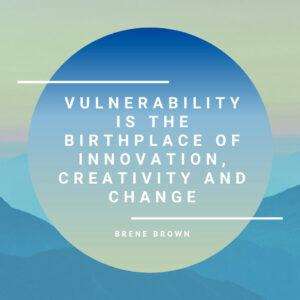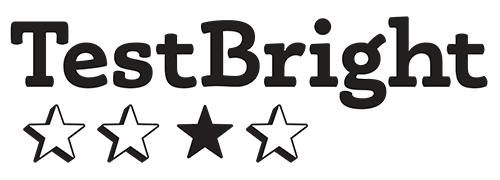Rick DuFour, a well-known innovator in K-12 education, told a story about how his sister went to an ophthalmologist 20 years ago to receive what was then revolutionary Lasik surgery. Radical, yes, but the expensive procedure was hours long and recovery required several days of inconvenience and missed work.
Imagine if that pioneering doctor never changed his procedure from 20 years ago and stayed with what he knew, while a second doctor risked uncertainty, learned new techniques, and continued to explore the edge of research, resulting in a 30-minute procedure whose patients had little to no recovery time. DuFour compared the foundations of schools to the plight of the first ophthalmologist. Certainly, the second physician has more resources to impact change than most educators, but, at the same time, educators need to take on risk, uncertainty, and continued learning to initiate improvement in an educational environment slow to change.
According to Brene Brown, “Vulnerability is the birthplace of innovation, creativity and change.” Counselors need to be willing to become professionally vulnerable like the second doctor to become agents of change. Putting your hat into the arena to stretch beyond a comfort zone and challenge tradition is a risk worth taking. The solutions I proposed in “The Games We Play” post are significant changes for some high schools because tradition often takes precedence over what is best for children. Getting a seat at the table is a good start. In high schools it is critical that the school counselor gets a seat on the district committee that oversees shared decision making regarding how curriculum is delivered. While you will be outnumbered, your perspective on whole child and educational research can unite the thinking of the varied educational opinions around the table to better develop young people.
Independent educational consultants can share their whole child and collegiate perspective with colleges. Most post-secondary institutions have advisory councils and are looking to educational professionals to join their ranks. In some states like New York, high school counseling offices have advisory councils on which having a community member is encouraged. Your expertise on child development and ability to provide insights to the different plights of high schools (developing all children) and admissions offices (differentiating applicants) is good perspective to provide.
Change in institutions like public schools and colleges is hard. At the very least, putting yourself in the arena and becoming vulnerable creates opportunities for personal growth, professional stretching and continuous improvement.

Perfectly Pertinent Podcasts
Sharing the right podcasts can extend, enrich, and deepen your influence as a counselor.
One for your students:
Making the Most of College Visits (Tests and the Rest)
One for their parents:
Overlooked Aspects of Campus Life (Tests and the Rest)
One for you and your colleagues:
Your Campus Visit Roadmap (Dartmouth Admissions Beat Podcast)
VIDEO: Ranking students – a toxic system | Elizabeth Daves | TEDxLakeTravisHigh

Did you enjoy this issue of The Influential Counselor? Get the next issue right in your inbox by subscribing below:
